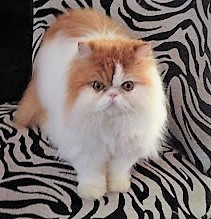Does your pet quickly build up tartar on his teeth? While brushing and regular dental visits are essential, there is a lot you can do to reduce tartar build-up on your dog or cat's teeth. Tartar is the accumulation of plaque that has remained on and between the teeth. While age, health, breed and hygiene are factors, diet and poor digestion play a central role in your pet's tartar control and dental health.
If the plaque is not removed, it may start to combine with the saliva and begin to mineralize, into tartar, in just 3-5 days. If left untreated the tartar can cause the gums to become inflamed and red, pockets may form between the gums and the teeth and it can allow bacteria to grow, which could lead to tooth loss, bone loss and widespread infection.
It is important to treat and control tartar accumulation for three very important reasons:
• to maintain the health of teeth and gums
• to guard against infection spreading to other parts of the body
• rapid buildup or problem teeth are often a sign of poor digestion
A common myth that simply giving pets hard, crunchy food to prevent dental problems has not proved true in veterinary research. It is the quality of ingredients and your pet’s ability to digest them that will reduce tartar and tooth decay. Saliva is a core part of tartar accumulation and acidic saliva (due to digestive upset and acid stomach) can result in acid erosion of the teeth. When you improve your pet’s diet and digestion, their teeth and gums will improve too. Be sure to ask about anesthesia free dental cleanings in your area and if possible brush your pet’s teeth.
Feeding fresh, easily digestible pet food ingredients will promote healthy teeth and gums. Ensuring your pet is digesting food properly is key. Signs of poor digestion include gas, bad breath, hunching over after meals, loose stool, licking or smacking of the lips, vomiting and eating excessive amounts of grass.
Natural supplements that help to improve your pet's digestion can also reduce the tartar on your pet's teeth. Since the mouth is the beginning of the digestive process, these supplements help to maintain a healthy digestive process. Good digestion results in saliva with the proper pH which can greatly impact your pet's teeth and gums.
Colostrum for Pets- Colostrum has been shown in research studies to enhance digestion and improve the immune system. Colostrum is very helpful for pets with bad breath, gingivitis and stomatitis. Ask Ariel Colostrum For Pets contains tegricel colostrum which is backed by scientific research and proven to be more effective than general colostrum products. Note: Colostrum is derived from dairy and should not be used by pets with a known dairy allergy.












